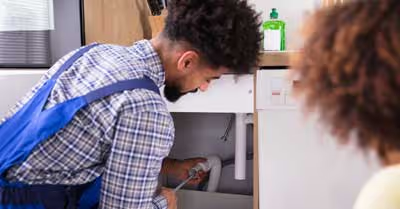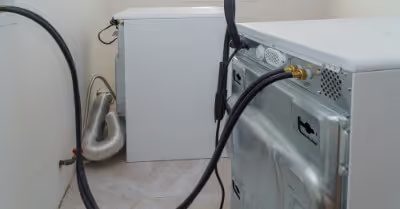Table of Contents
What is foreclosure?
Foreclosure is the act of the bank selling your home. This happens because payments on the loan you agreed to (a mortgage) cannot be paid on time. When you sign an agreement with the bank, you are essentially making a deal that they will give you enough money for a house on the condition you make monthly installments back to them. The bank does this because they can tack on a small annual interest rate. This means throughout the entire loan, perhaps 30 years, you will end up paying about 15-30% more than the cost of the house. This is how the bank makes its money. You might think that is an unfair agreement since you end up paying so much more than the house is worth. But, you wouldn't be able to afford the house at all otherwise. If you could, you wouldn't have a mortgage in the first place!
Foreclosure is a complicated process that can leave you very confused about where you stand. Especially financially wise. Who owns what and who gets what during this process will get very dicey. The bank will try to claim ownership of as much equity and value of the home as possible. This is understandable, given they do technically own the house at this point. Further on in the article, I will explain what to look for here and how you should approach the situation. The short answer is, the bank will get everything they can.
What is equity?
Equity is ownership of an asset. You can have equity in all sorts of things. If you are leasing a car to buy, you might be purchasing equity in monthly installments. If you invested in a business, you might own equity in the form of stocks or shares. When it comes to a house it works pretty much the same. If you buy a house outright with your own money, you own 100% of the house. Or 100% equity. When you buy a house with the help of the bank and are making monthly payments, the amount of equity you own goes up monthly. Let's take a house of $200k in value. You pay the deposit of $50k, the bank pays the rest. This would mean you own 25% of the equity of the house. After a year, you have paid another $10k of the loan off. Accounting for interest, you would probably own about 29% of the equity of the house in question.
In the above scenario, it might take you 20 years to pay off the entire loan. Meaning you wouldn't have full equity for 20 years from the date of purchase. Now, how this affects you is as follows. If the house is worth $200k when you buy it, but you spend your time fixing up the garden and doing some cheap repairs inside and the market treats you kindly, you might find in 5 years the house is worth $225k. Now, since 5 years has passed you might own 40% of the equity. So, when the house is sold for $225k you would be entitled to 40% of that ($90k). This works the same for businesses too, if you buy 10% of the business for $100k and it sells for $10m, you would be entitled to $1m.
What happens to equity during foreclosure?
During the foreclosure of your home, the bank will do everything it can to recoup its costs. As they are well within their legal right to do. How this affects equity varies from case to case. As with most things in the real estate world, it is tied somewhat to the strength of the housing market. If the market is strong, and the house can be sold for its full value, then the bank will be able to recoup their losses. You must remember, the bank only owns as much of the house as their equity equates to. Just because the bank is foreclosing on you doesn't mean you lose all of your equity. Let's take that $200k house as an example again. Ignoring growth and inflation, let's assume that the bank forecloses on the house when you are 1/3 of the way through your mortgage. You own 50% of the equity, the bank owns the other 50%. You only owe the bank $100k. So if the house can be sold for the full $200k you are going to be able to pay them back and keep the remaining $100k yourself. As it is, by law, yours.
How much equity can I expect to keep?
While the above is true, you do technically own that much of the house, how much you end up keeping may vary. If the house cannot be sold for its full value, which you'll sadly find very likely won't, then you may find yourself losing out. The loan must be paid off, so the difference between the amount the house sold for and the amount the bank needs. For example, if the house only sells for 75% of market value the bank would take the remaining funds out of your part of the equity. Then, you need to consider fees. Sometimes you lose out on a large amount of your equity because you are expected to pay realtor fees, mortgage fees, late payment fees, and whatever expenses are needed to get the house in a condition to be sold. If repairs need doing, they come out of your side of the sale. Sadly, if the house sells for under its value you may end up with nothing. You may even find you still owe money!
Will I get to keep 100% of my equity?
As mentioned above, how much of your equity you keep depends on how much you still owe and how much the house sells for. All of the costs will be taken out of your equity. Since you likely don't have the money to pay for things such as realtor fees and mortgage payments, the bank will pay for these and take the cost of them out of your share of the house sale. They may even charge you to do this. At the end of the day, the bank wants to get as much as they can from you. This is why many people accuse banks of being heartless. It is in their best interest, in some cases, for you to pay off some of the money owed and then default. With a foreclosure, the bank can end up making a nice profit. So long as the market is on their side.
Refinancing to keep your equity
One of the ways that you can ensure you keep as much equity of the home as possible is by refinancing your home. This can be done with the same bank, or with a new one. Essentially, what would happen is that you and the bank would discuss a new mortgage with new terms. Typically, ones that would be in lower payments so they would then be affordable to you. The reason this is possible, even if you cannot afford to pay your current mortgage, is loans can be "stretched". Imagine that same $200k house that we discussed earlier. You are 1/3 of the way through your 15-year mortgage and now own 50% of the equity of the house. You have also paid off more or less 1/3 of the loan owed. If you originally owed $150k you might now only owe $100k.
What the bank might do, is agree to stretch that remaining $100k into a new 15-year mortgage. Your monthly payments would be less, making it more affordable for you. The bank would get more money, in the long run, thanks to their little friend called interest. You will, of course, be in debt for longer, end up paying far more overall, and may need to put something else up as collateral (if you have any tangible assets). This can sometimes be done with the current bank you are with if they believe you will be able to make the new agreed payments. Often though, you will find your bank would rather be rid of you and you may have to go elsewhere for financing. Since you are otherwise being foreclosed on, the banks will be well within their rights to charge you an extortionate interest rate. You may end up paying 50% more than the loan was originally for by the end of the 15 years.
Trading equity
One of the other options available to you is trading equity in your home. It is possible to sell off part of your portion of the equity of the home to a third party, to generate the funds to continue paying the mortgage loan to the bank. Let's use the same example as above, you are 1/3 of the way through your mortgage and own 50% of the equity of the house. You still owe the bank $100k, but, the house is now worth $225k. You own $112,500 of the equity of the house. Which, if you are good at basic maths, shows you have the equity to pay off your loan. In reality, you might not want to give up the majority of the ownership of the loan to pay off the bank. When it comes time to sell, you would only be getting a small portion of the sale. But, you would be out of debt. Of course, the rest of the sale would go to the person who owns equity in your home. Similar to how if you own shares in a company and it gets sold, you might get paid dividends.
How can I stop my house from being foreclosed on?
Just because your house is set to be foreclosed on doesn't mean there is nothing you can do. Many people fail to realize that there are ways to pay off your loan to the bank, with the help of a specialist. Our partners have a company that finds people who are being foreclosed on and buys their house from them.
We will pay off the loan to the bank so you don’t get foreclosed on. This is a win-win-win. You avoid the 7+ years of credit issues that come with foreclosure and many times you can remain living in the home as a tenant. The bank has their loan repaid in full, and guarantees they make all their money back. Having you owe them doesn't help when you don't have any money! Foreclosure is a terrible thing to have to deal with. This is by far one of the best options available to you. If you want to know more, you can submit a form here.
Conclusion
So, how much equity you will keep depends on how much you can sell the house for vs how much you owe the bank. What wasn't mentioned above is that as you pay off your loan, the debt owed goes down as your equity goes up. This means that although the bank might foreclose on you, you may still end up with a nice lump sum of cash to help you find a new place to live. Or, you might find yourself homeless and penniless. That's why it is strongly advised you seek the help of a professional to pay off your debt if your bank threatens you with foreclosure.
Recent Articles
















